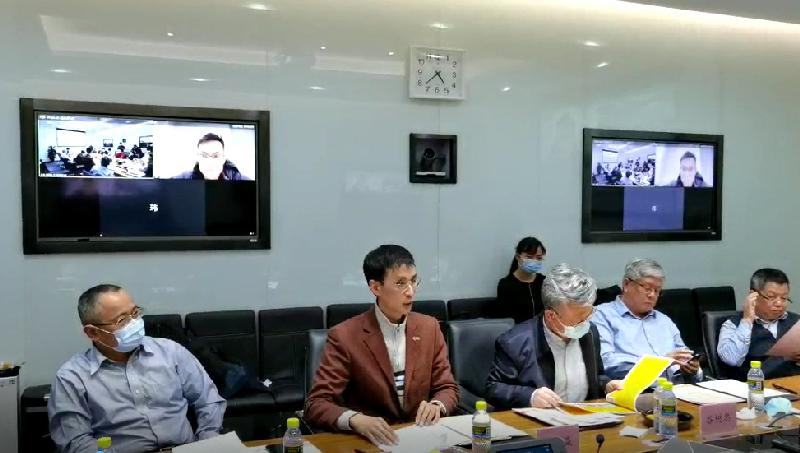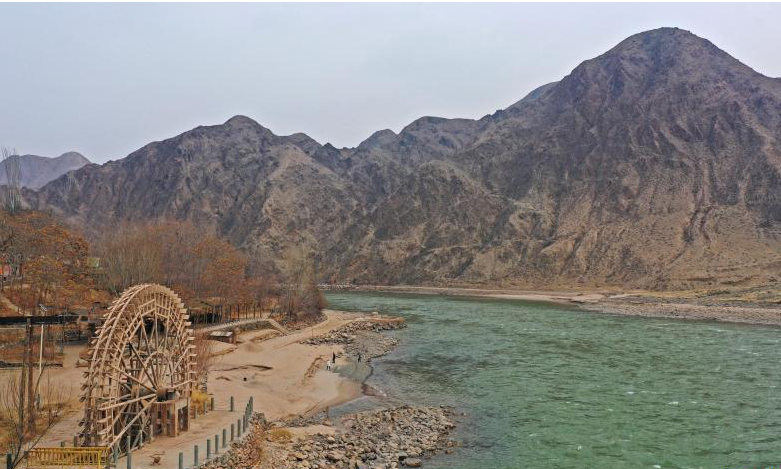Three stories showcasing how China’s democracy works
The annual “Two Sessions” of China’s top legislature, the National People’s Congress (NPC), and top political advisory body, the Chinese People’s Political Consultative Conference (CPPCC), kicked off on March 4, 2021. During the meeting, NPC deputies and CPPCC members from all walks of life across the country gathered together to discuss China’s development path.
The political event offers a vivid example of China’s socialist democracy: from taking part in the NPC and CPPCC discussions to joining online solicitations for the compilation of the Five-Year Plan, the Chinese people administer state and social affairs and manage economic and cultural undertakings through various channels and in various ways, making the achievements of socialist democracy visible and tangible.
Democracy is not an empty word but a substantive practice that connects the wishes of the people to the services of the government. The following three stories illustrate how China’s democracy works.
CPPCC member Zhang Xingying: “I use my expertise to help the nation fight climate change”
Zhang Xingying attends the fourth session of the 13th National Committee of the Chinese People's Political Consultative Conference (CPPCC) at the Great Hall of the People in Beijing. (Photo provided by Zhang Xingying)
Zhang Xingying, director of the Satellite Meteorological Institute, National Satellite Meteorological Centre, often stays at the meteorological satellite ground station located in a Beijing suburb to monitor carbon dioxide (CO2), which is closely related to the proposals he puts forward each year at the nation’s two sessions.
Zhang is also a member of the National Committee of the Chinese People’s Political Consultative Conference (CPPCC), and is playing his part in putting the country on the path to carbon neutrality.
During the two sessions last year, Zhang submitted three proposals to the CPPCC, all of which were related to ecological environment and climate change. Their aim was to protect and restore the ecological environment according to local conditions, prevent the risk of major disasters caused by climate change and strengthen the management of the atmospheric environment.
To his great pleasure, all three proposals were adopted and received positive responses from organizations in charge of ecological environment and emergency management.
Currently, nine ministries and commissions are working to establish a mechanism to monitor and share data, among which the Ministry of Ecology and Environment and the China Meteorological Administration have achieved 13 categories of historical and real-time data sharing.
Last year, China announced that it will strive for CO2 emissions to peak before 2030 and achieve carbon neutrality by 2060. As this year marks the start of China’s 14th Five-Year Plan, China has set out new plans for the battle against pollution and climate change.
“We need to be more innovative and science-oriented to tackle the challenges of climate change we are facing,” said Zhang.
To this end, Zhang, who has been working in meteorology for over a decade, has exerted his utmost efforts to contribute to the country’s carbon-neutral efforts through his role as a CPPCC member.
Over the past few years, he has conducted extensive and in-depth research on carbon reduction, such as visiting enterprises to learn about the carbon reduction effects of bike-sharing and going to research institutions to learn about the progress being made in scientific research into carbon emissions.
Zhang Xingying (2nd left) conducts an investigation into carbon reduction effects of bike-sharing in Meituan, a leading bike-sharing operator.
At the end of 2020, the Ministry of Ecology and Environment nominated Zhang and four other Chinese experts to the Scientific Assessment Panel (SAP) of the Montreal Protocol on Substances that Deplete the Ozone Layer, enabling him to take an active part in global environmental protection efforts.
This scientific research and experience were all integrated into his two sessions’ proposals, which, once adopted, will be included in the country’s policies on environmental protection.
Zhang said his proposals this year focus on improving the global greenhouse gas observation network and the allocation of atmospheric resources during the 14th Five-Year Plan period, in a bid to achieve a win-win situation for ecological protection and economic growth.
“I hope to make full use of my role as a CPPCC member to obtain more scientific knowledge gained from extensive research, and then help the country better protect its ecological environment and tackle climate change,” said Zhang.
 |
Photos
Related Stories
- Schedules for NPC, CPPCC annual sessions on March 10
- Presidium of China's annual legislative session holds 2nd meeting
- Chinese lawmakers raise 473 proposals to annual legislative session by Monday noon
- Chinese premier to meet press on Thursday
- Women shine at China's "two sessions"
- Ministers receive interview after 2nd plenary meeting of fourth session of 13th NPC
Copyright © 2021 People's Daily Online All Rights Reserved












